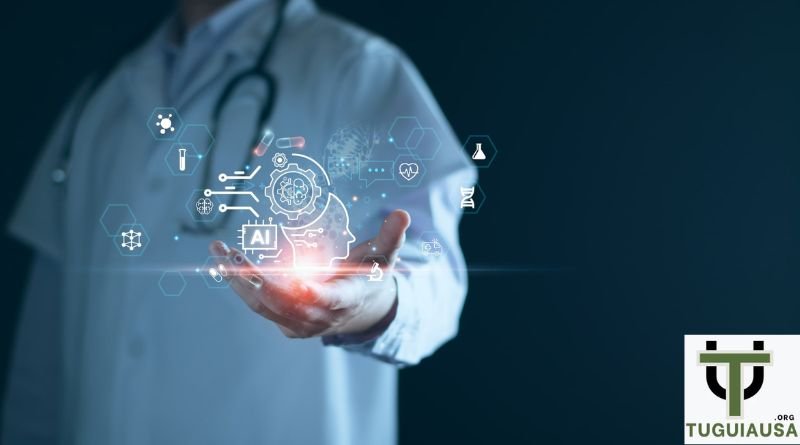AI has become advanced enough to help detect diseases before they become serious. It doesn’t mean that it can replace a real doctor, but helps analyze the risks quickly. Many people use the AI doctor tool to understand their health symptoms in just a few seconds. This way, you can know what could be the causes of these symptoms so that you can better plan your treatments accordingly.
AI in Healthcare: A New Approach
AI in healthcare acts like a smart assistant for patients and doctors as well. This AI-powered online tool learns from the medical data that is stored in its database. The working of the tool happens in three steps. For example, when a patient enters their health symptoms into the AI doctor, the tool then:
- Analyze their symptoms
- Compare them with the pre-saved medical data in its library
- Provide early warnings about diseases
Doctors can also use this tool to prescribe the relevant medicine and treatment.
How AI Identifies Health Risks Early?
AI-powered doctor tool has the ability to analyze past medical reports given by patients. The tool can also identify even small signs of a specific disease that a real doctor may not notice. Here are the ways how AI helps in health risks early:
A. Analyzing Medical Data
The doctor AI tool can analyze large amounts of medical reports and compare them with previous cases for quick and early prediction of disease.
B. Monitoring Symptoms
AI-powered apps and wearables track heart rate, blood pressure, and sugar levels. They alert users and doctors if something unusual happens.
C. Helping in Early Diagnosis
Doctor AI chatbots ask users about their symptoms and suggest possible conditions. They guide users to seek medical help on time.
D. Identifying Genetic Risks
AI examines family history and genetic information to predict the risk of diseases like cancer and diabetes. It helps people take preventive measures early.
Benefits of AI in Health Monitoring
AI improves healthcare by detecting diseases faster and reducing errors. It works around the clock, providing continuous monitoring. AI also helps lower healthcare costs by reducing unnecessary hospital visits and tests. With AI-driven health plans, people can take better preventive measures.
Challenges AI Faces in Healthcare
Despite its advantages, AI has some challenges. It lacks human judgment, meaning doctors must verify its findings. There are also privacy concerns because AI systems store sensitive health data. Additionally, AI predictions are not always perfect, and incorrect results may cause confusion.
What the Future Holds for AI in Healthcare?
AI continues to evolve, making disease detection even more accurate. Future AI medical assistants will become smarter, and wearable devices will track a wider range of health conditions. AI will work alongside doctors to provide even better healthcare solutions.
Relevant FAQs!
Can AI replace human doctors?
No, AI supports doctors but cannot replace human expertise.
How accurate is AI in detecting diseases?
AI is highly accurate but requires confirmation from a doctor.
Are AI doctor chatbots reliable?
They provide basic guidance, but a real doctor should handle serious health concerns.
How does AI help detect cancer?
AI analyzes medical images to find early signs of cancer, helping doctors start treatment sooner.
Is my health data safe with AI?
Most AI platforms use strong security measures, but choosing a trusted platform is important.
Wrap Up!
AI is shaping the future of healthcare by detecting health risks early. It enhances disease detection, assists doctors, and provides reliable health monitoring, making medical care more efficient and accessible.
May Also Read: tuguiausa

